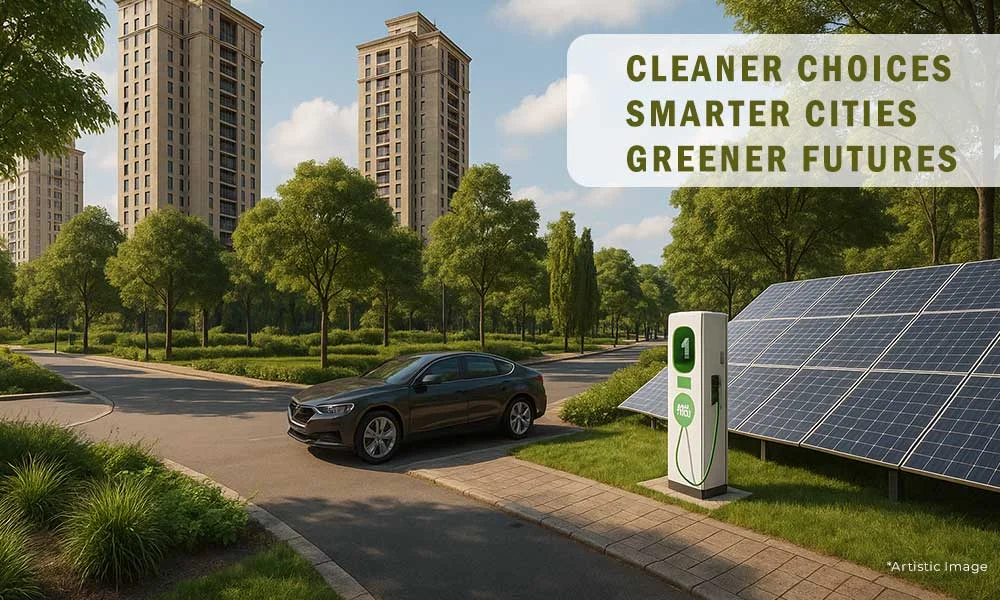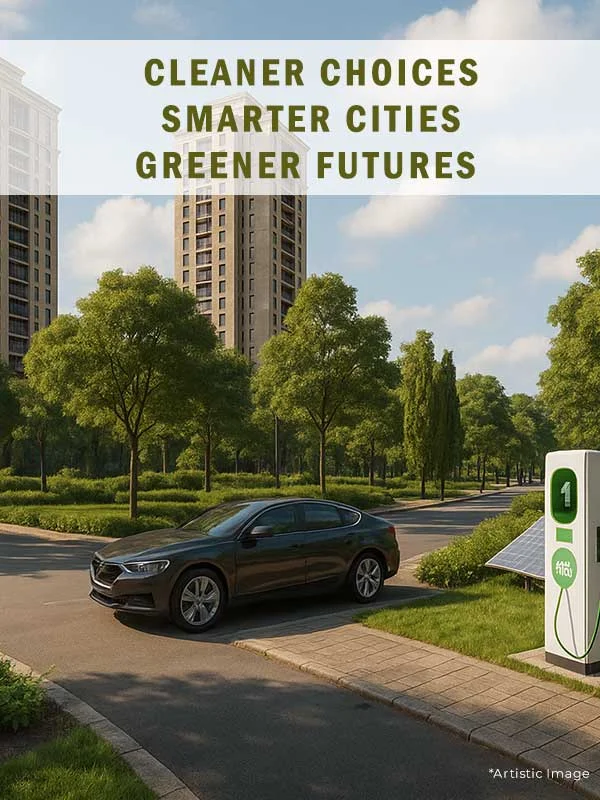Environment is Economy: Why Sustainable Real Estate is the Future
“More than 50% of global GDP—around $44 trillion—is moderately or highly dependent on nature and its services.”
— World Economic Forum
The environment isn't separate from the economy, it is the economy. From clean air and water to fertile land and stable climate conditions, natural ecosystems form the foundation of every business operation. As industries recalibrate in the face of climate change and resource scarcity, one truth stands firm: economic prosperity is inseparable from ecological preservation.
At Hiranandani Communities, we have long recognised this fundamental truth. For us, environmental stewardship is not a reactive trend, it has been a part of our township philosophy since inception.
A Legacy of Sustainability at Hiranandani Communities
Sustainability is woven into the DNA of every Hiranandani development. Our vision of building integrated townships has always been rooted in respect for nature and long-term livability. Over the decades, our environmental strategies have evolved with one consistent aim: to create self-sufficient, future-ready ecosystems where people and planet flourish together.
Our initiatives reflect this commitment:
- Tree-lined avenues and native biodiversity belts that purify air and support ecological continuity
- Rainwater harvesting, STPs, and greywater recycling systems that reduce water dependency
- Green-certified buildings that lower carbon emissions and promote energy efficiency
- EV charging infrastructure to encourage clean mobility
- Integrated waste management systems across township operations
By planning with nature, not against it, we don't just build spaces, we build sustainable legacies.
Rethinking Plastic Use in Real Estate Development
This year's theme for World Environment Day, “Beat Plastic Pollution”, further underscores why our sustainability journey must evolve in line with new environmental challenges.
Plastic waste, often invisible in its impact, is now one of the most critical threats to our ecosystems. As builders of large-scale infrastructure and thriving residential communities, we acknowledge that the real estate sector has a role to play in rethinking its reliance on plastic, right from construction materials to everyday operations.
How We Can All Contribute to a Plastic-Free Future
While institutional reforms and corporate actions are critical, transformative change also starts at the grassroots with individuals and communities. Each of us plays a vital role in reducing plastic pollution.
Simple yet effective steps include:
- Opting for sustainable alternatives such as bamboo, metal, or cloth over plastic
- Encouraging zero-waste practices in homes and community events
- Supporting vendors who adhere to plastic-free practices
- Installing segregated waste bins to improve recycling efficiency
- Fostering eco-conscious mindsets through awareness and education
Plastic pollution is a design flaw that we now have the opportunity and responsibility to correct.
In Conclusion: A Call to Rethink Progress
At Hiranandani Communities, we believe progress is not measured solely in square feet, but in the quality of life we create and preserve. Economic value and environmental value are not at odds, they must move in tandem.
As we mark World Environment Day, let us reaffirm our collective resolve:
"There is no economic growth on a degraded planet."
Let's continue to build not just homes, but a future that is regenerative, balanced, and inclusive. Because in the truest sense, the environment is the economy.



